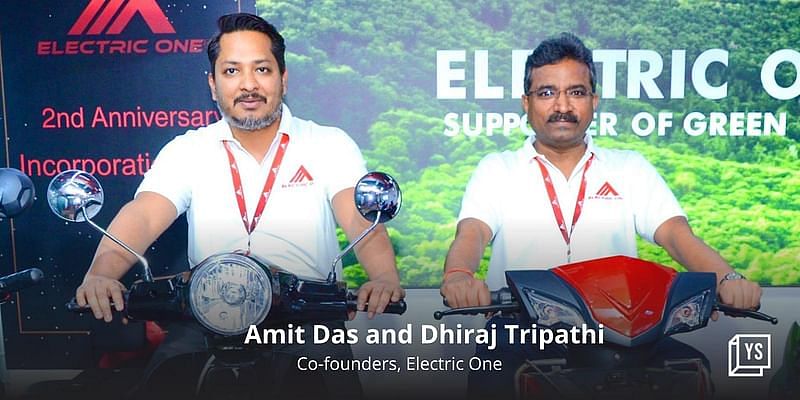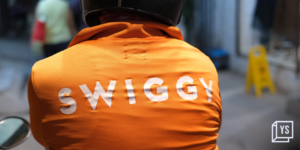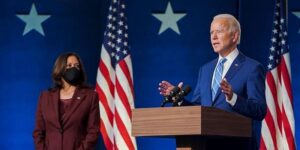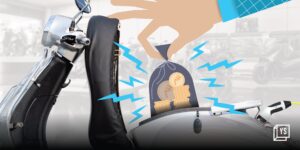If you hit the roads in any of India’s major cities, you’re bound to come across an electric vehicle (EV) or two. India is fast adopting EVs, with the two-wheeler segment leading the push—accounting for 50% of the total 4.67 lakh EV sales, as per an India Energy Storage Alliance report.
Many players have contributed to this growth—starting in 2007 with Hero Motocorp’s Hero Electric to now Bajaj’s Chetak, Hero and Tiger Global-backed Ather Electric, TVS iQube, Bounce Infinity E1, and now even Ola has joined the rush.
However, neither of the players has been able to dominate the electric vehicle market due to either the lack of EV infrastructure, consumer awareness, trust deficit among riders, or all of the above. That’s where Amit Das saw a massive opportunity to boost EV sales using multi-brand stores.
“Since there were so many EV brands coming to India, and homegrown ones are being accepted as well, we thought a multi-brand outlet would be a good bet,” Amit told YourStory in an interaction.
That’s when he founded in 2020. The Gurugram-based startup operates multi-brand retail stores for EV two-wheelers on a franchise model.
The team
Founder and CEO Amit was a part of the leadership team in talent management firm Mercer Mettl. His skills were complemented by Guido Quill, who was a business development advisor to a China-based solar company. Based in Düsseldorf, Germany, Guido has been a part of the founding team since the beginning.
Dhiraj Tripathi, who is an automobile veteran with an experience of 25 years, joined the founding team in April 2022. He has worked at Bajaj Auto and Honda Cars, and was the regional head at Hero Moto Corp for Africa and the Middle East. On his business trips, he would notice that there were multi-brand two-wheeler outlets all across the world.
“Over the last 10 years, I’ve travelled across more than 30 countries, and noticed that at least in 70% of them, the two-wheeler market would be multi-brand. Hardly 10-20% of them would be exclusive dealer stores. Why does this not exist in India?” he questions.
So, he quit his steady, high-paying job to build Electric One.
Electric One’s team based in Gurugram
Multi-brand stores
Electric One operates in three store formats in a franchise model.
The company’s flagship stores, which are about 2,000 sq ft large, are given to traditional automobile dealers who have worked with brands including Maruti, TVS and Honda, among others. A flagship store is more suited for a city like Lucknow, where the company set up a store in November 2020.
The second store type is outlets of less than 1,000 sq ft, which are operated by individuals as a side business. The third and the smallest outlet—measuring around 500 sq ft—is run by small-scale businesspersons in Tier-III cities and beyond.
These stores stock EV two-wheeler brands including Kinetic Green, Cosbike, Okinawa, Evtric, and Hayasa, among others. In the last few months, the firm also started stocking its in-house EV two-wheelers brand, Yaan.
Yaan features e2W two-wheeler model at a few outlets. The startup manufactures the electric scooters on a contractual basis, and only started selling them in 2021.
Electric One also stocks electric three-wheeler brands like Andaaz, Mayuri, and Ele, and e-cycles from Hero Electro, Motovolt, and EM.
The firm chooses its partners carefully based on their selling capabilities, connection and financial capabilities, and credentials in the market.
“We need this kind of scanning because selling EVs is a very customer-facing business. So, we usually look for people who have been in a business where they would interact more with people,” says Amit.
Electric One opened its first store in August 2020, followed by a second store in October 2020. While the COVID-19-led lockdowns played a spoilt sport, halting the company from opening stores for some time and also affecting sales, the firm emerged stronger and opened 55 new stores between July 2021 and March 2022.
It also expanded its team to over 30 members and plans on adding more members in the coming months. Currently, it has 82 outlets across India, with 17 stores in Uttar Pradesh—the highest.
Electric One’s multi-brand flagship store
Electric One’s financials
In FY 2022, the startup says it sold 3,225 bikes. It charged a 6-7% aggregator margin or commission, which translated to a turnover of Rs 19 crore last fiscal. For FY 2023, Electric One plans on bringing the total store count to 300 and aims to sell over 25,000 bikes, targetting a turnover of Rs 178 crore.
To meet this ambition, the founding team, which bootstrapped the firm with close to Rs 1.5 crore, is currently looking to raise the first funding round.
While both central and state governments are revving up the EV market with subsidies and charging infrastructure, there is still a long way to go before people start trusting EV bikes. This is especially true amid incidents like Ola Electric’s two-wheelers catching fire, among other news of EV battery issues.
“That’s what we are trying to do here. We need to educate and provide good after-sales service to our customers. And if we can do that correctly across the country, I think we will unlock a huge market,” says Amit.
Electric One educates buyers through their sales and after-sales services. “The store owners who work with us educate the potential buyers with basic things like how to use the battery. The lithium battery used in our phones is similar to the one used in electric vehicles. So, if you keep either of the objects in the sun for too long, it will get very hot,” says Dhiraj.
Among other things, the after-sales services include connecting customers to the right spare parts firms.
Electric One currently competes with Bengaluru-based Auto EV Mart by Greeves, Delhi-based VOLC, and Goa-based BLive in the multi-brand store format.
The electric vehicle industry in India is expected to expand at a CAGR of 36% by 2030, according to India Brand Equity Foundation.










